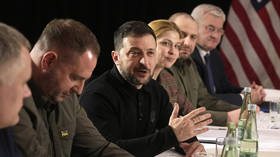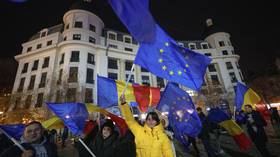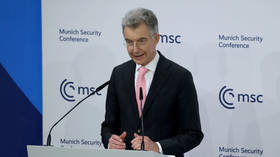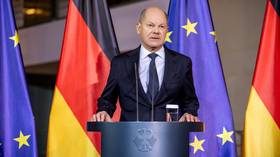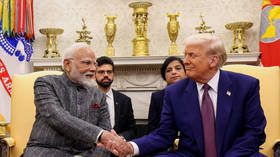More EU members speak out against proposed Russian tourist ban
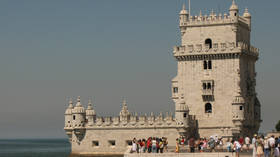
Cyprus and Portugal are refusing to back a proposal by several other EU nations to ban Russian tourists, as part of anti-Moscow sanctions over the Ukraine conflict.
“Portugal believes that the fundamental objective of the sanctions is to punish the Russian war machine and not the Russian people,” the Portuguese Foreign Ministry said in a statement to news website ECO on Friday.
Kornelios Korneliou, General Secretary of the Cyprus Foreign Ministry, said his country also opposes a blanket ban on Russian travelers. “It would be a decision in the wrong direction,” Konreliou told Politico magazine on Friday. “We believe in people-to-people contacts.”
Cyprus has a sizable population of Russian-speakers, around 50,000 of whom live in the southern city of Limassol, according to Politico.
“We shouldn’t prevent these communities from coming into contact with families and friends,” Korneliou said. “The main weapon is European unity and our partners should respect the sensitivities of others on this issue.”
Greece suspended issuing visas to Russians in late June, but resumed the following month. Like Cyprus, Greece is a popular tourist destination for Russians, and, according to Politico, Athens also opposes a total ban on Russian visitors.
Several EU countries, including the Czech Republic, Poland, Latvia, Estonia and Finland, have been pushing for an EU-wide ban on Schengen visas for Russians. Estonian Foreign Minister Urmas Reinsalu told the TV channel ERR this month that Russian citizens “by their passivity, bear moral responsibility” for the actions of their government and that it is “completely morally unacceptable” to permit Russians to travel as tourists to Europe during the Russia-Ukraine conflict.
That view was rejected by German Chancellor Olaf Scholz, who said the EU should not shut its doors to all Russian nationals. “It is important to us to understand that there are a lot of people fleeing from Russia because they are disagreeing with the Russian regime,” Scholz told reporters during a trip to Norway this week.
The matter will be discussed at a meeting of EU foreign ministers in Prague on August 31.




